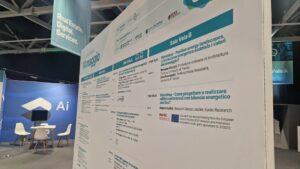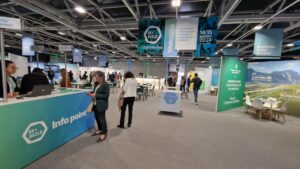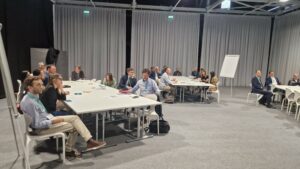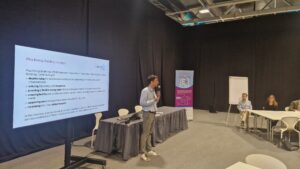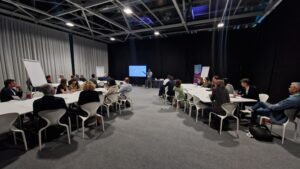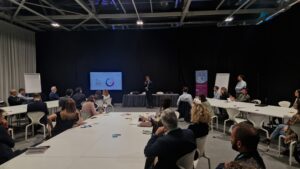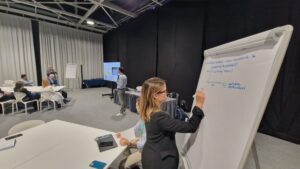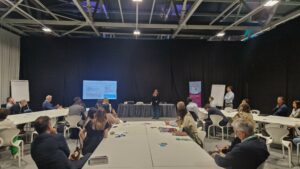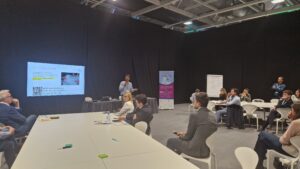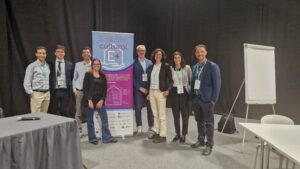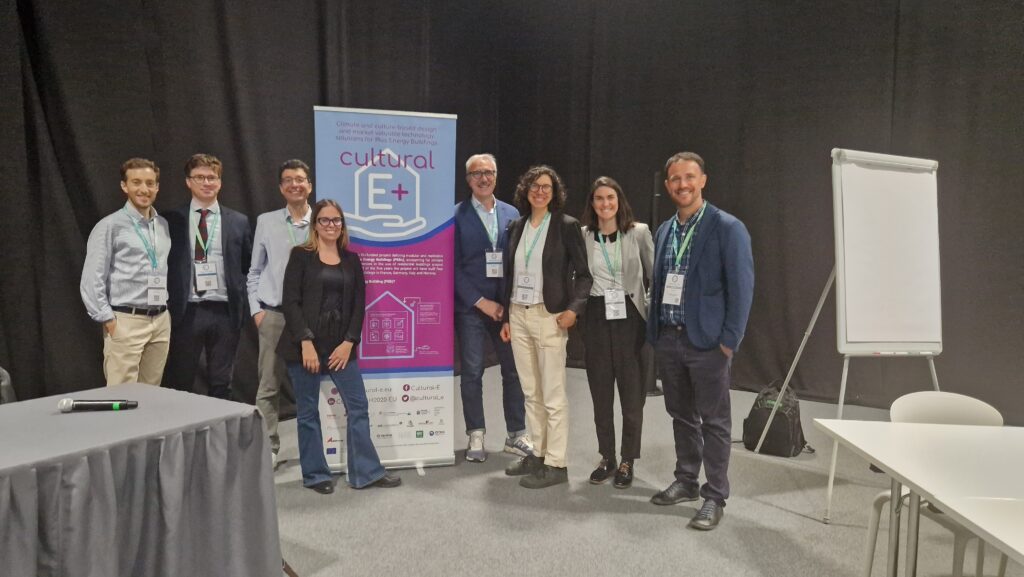How to design and create comfortable buildings with positive energy balance?
Comfort and indoor quality have been one of the key themes of REbuild, the main event about innovation in the construction sector in Italy. Eurac Research conducted a workshop with more than 50 participants, featuring a presentation of the technologies developed in Cultural-E, with a focus on how they can contribute to the user’s well-being.
Roberto Lollini (Eurac Research) opened the workshop with an introduction to plus-energy buildings (PEBs). He underscored the importance of a user-centric approach in PEB design and addressed the barriers hindering the acceptance and adoption of PEBs, highlighting potential drivers to facilitate their integration. He presented the Decentralized Packed Heat Pump System on behalf of Ventive, highlighting the key features and benefits of this all-in-one comfort system.
Francesco Isaia (Eurac Research) followed with an explanation of the Cloud-based House Management System (HMS) developed by Advanticsys. The HMS monitors Indoor Environmental Quality (IEQ) and interacts with building technologies to enhance user experience.
Giovanni Toniato (EuroFinestra) introduced the Active Window System (AWS), an integrated element within a broader strategy for energy and indoor air quality control. The prototypes are being tested in Eurac’s external laboratory and installed in demo cases in Germany and Italy.
Giulia Torriani (Eurac Research) presented the Smart Air technology developed by Vortice, focusing on resilient energy solutions. The smart ceiling fan technology can save up to 60% of energy while maintaining user comfort. She discussed strategies to enhance user acceptance and the involvement of designers and manufacturers.
The round of presentations was concluded with a focus on solution sets and harmonized control strategies. Simulation activities are instrumental in understanding the interaction between various technologies and the potential for comprehensive supervision of control strategies.
The workshop participants discussed how to enhance and ensure users’ well-being in residential buildings. Key challenges identified included ensuring air quality sanitation with natural ventilation, the lack of national guidelines and shared protocols, and difficulties associated with installing and maintaining advanced technological buildings.
Participants also highlighted the importance of choosing appropriate system types for different building types, emphasizing the centrality of comfort in PEBs, and recognizing comfort as a dynamic and culturally diverse concept. The lack of competencies and attention to social and cultural aspects were noted as significant barriers.
The workshop concluded with the proposal of several strategies to address these challenges:
- Context-based building design and management, considering natural or mechanical ventilation based on building environment dynamics.
- Proper implementation of recent recast EPBD, advocating for European harmonization of EPC and renovation passports.
- Integration of the supply chain and offsite construction to address the challenge of implementing complex technologies while ensuring high quality and negotiated performance.
- Shifting the design scope from a neutral indoor climate to a personalized indoor climate, ensuring energy efficiency and users’ well-being.
- Resolving the monetization issue through measuring willingness to pay: how to measure is still an open point.
Photo credits: Ludovica Galeazzi, EURAC
